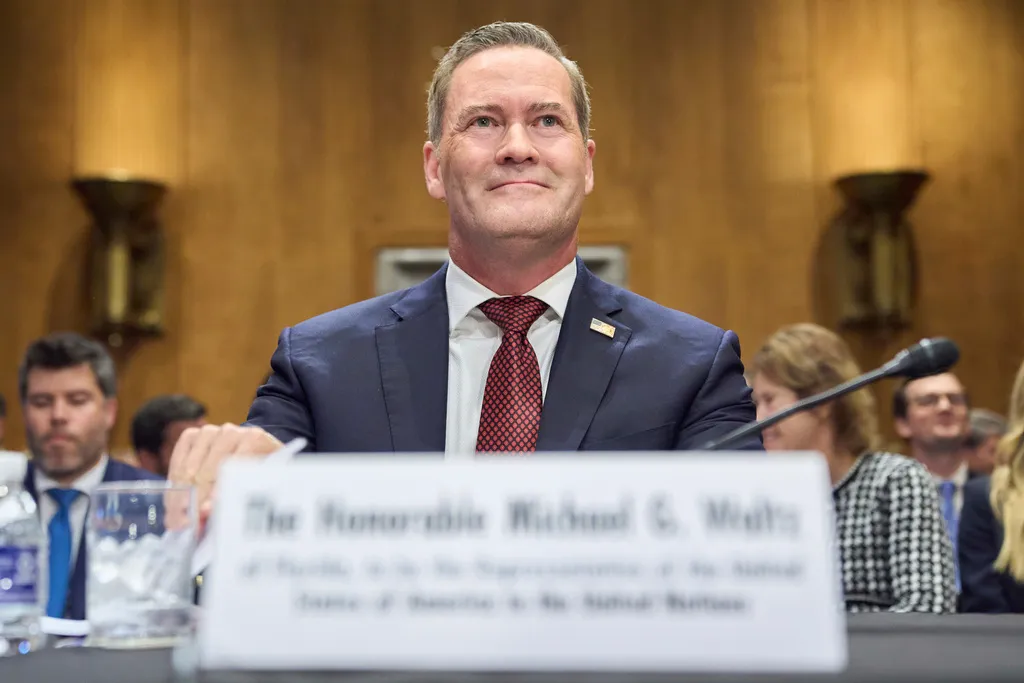The confirmation of Michael G. Waltz as the U.S. Ambassador to the United Nations represents a pivotal turning point in American diplomacy, carrying major implications for climate policy, sustainability initiatives, and anti-corruption reform at the U.N. This appointment, the final piece of the Trump administration’s cabinet, signals a decisive shift in U.S. engagement with international organizations and offers insight into the administration’s priorities on the global stage.
Historical Context: U.S. Engagement with U.N. Climate and Sustainability Initiatives
For decades, the United States has played a central role in shaping U.N. climate and sustainability agendas. From participation in the Kyoto Protocol and the Paris Agreement to funding agencies like the U.N. Environment Programme (UNEP), U.S. policy traditionally supported multilateral efforts to combat climate change. However, shifts in political leadership have periodically altered this stance. The Trump administration, including Waltz’s impending role, reflects a growing skepticism toward multilateral climate commitments, emphasizing domestic energy production and national security over global environmental accords.
Waltz’s confirmation signals a continuation of this trend. The ambassador has explicitly questioned the relevance of multiple U.N. bodies focused on climate and environmental protection, suggesting a reprioritization of U.N. efforts away from climate initiatives and toward issues like conflict resolution and energy policy. Already, the U.S. has withheld its annual U.N. contribution, and Waltz has pledged to maintain funding freezes until the organization undertakes substantial reforms. By reframing the U.S. approach in this way, Waltz and the administration are sending a clear message: climate and sustainability will not dominate U.S. diplomatic priorities at the U.N. during this tenure. For ongoing coverage of these developments, readers can follow Sustainable Action Now’s climate section.
Focus on Energy and “Woke” Programs
Beyond funding and oversight, Waltz has indicated plans to redirect U.N. efforts from what he terms “woke” programs toward more pressing global concerns. Energy policy, immigration, and geopolitical conflicts are expected to take precedence, reflecting the administration’s view that these areas have a more immediate impact on U.S. interests. This shift represents a fundamental change from previous administrations, which often framed climate change as a cornerstone of U.S. foreign policy. By emphasizing energy independence and national security, Waltz’s approach may reduce the U.N.’s influence on climate governance while simultaneously sparking friction with nations prioritizing sustainability.
Corruption and Accountability at the U.N.
Corruption and bureaucratic inefficiency have long been points of contention in U.N. operations. Waltz and the Trump administration have consistently voiced concerns about the lack of transparency in how U.N. funds, including U.S. taxpayer contributions, are allocated. His confirmation is widely interpreted as a move to demand structural reforms and “radical transparency,” potentially reshaping how agencies operate internally. The administration has also explored tying U.S. funding to the voting behavior of other member states—a controversial tactic that could be seen as leveraging influence rather than directly combating corruption. Regardless, it underscores a central tenet of Waltz’s agenda: accountability in the use of taxpayer money, and a clear expectation that U.N. agencies operate efficiently and transparently.
International Implications and U.S. Influence
Waltz’s confirmation has immediate consequences for U.S.-U.N. relations and broader international diplomacy. Aligning the ambassador’s priorities with the “America First” agenda may create friction with other member states invested in multilateral cooperation on climate change, sustainability, and global development. Analysts warn that reducing U.S. involvement in these initiatives could cede influence to strategic rivals, particularly China, which has increasingly positioned itself as a leader in global climate diplomacy. Former Democratic Senator Jeanne Shaheen, among others, has expressed concern that this approach may weaken the U.S.’s ability to shape international policy and undermine longstanding environmental partnerships.
Internally, Waltz’s effectiveness may also be influenced by his political track record. His removal as Trump’s national security adviser following a Signal messaging app controversy has drawn scrutiny, though his nomination to the U.N. role suggests continued confidence in his alignment with administration objectives. Navigating the complex web of U.N. bureaucracy, global expectations, and domestic political priorities will test Waltz’s diplomatic skill and strategic acumen.
What This Means for Climate and Sustainability Advocates
For activists, policymakers, and citizens concerned with sustainable action and global environmental governance, Waltz’s tenure represents both a challenge and a critical moment of engagement. Shifts in funding priorities, skepticism toward climate agencies, and reallocation of focus toward conflict resolution and energy policy may slow progress on climate initiatives at the U.N. However, transparency and accountability reforms, if successfully implemented, could lead to more efficient operations and better oversight of international programs.
Those tracking these developments can stay informed through ongoing coverage and analysis at Sustainable Action Now’s climate section, where updates on policy shifts, U.N. reforms, and their implications for global sustainability are regularly featured.
Michael G. Waltz’s confirmation as U.S. Ambassador to the U.N. is more than a political appointment—it represents a strategic recalibration of America’s role in global governance. From climate and sustainability to anti-corruption measures, his tenure is expected to reshape U.N. priorities in alignment with domestic interests, while testing the boundaries of international cooperation. As global stakeholders navigate these changes, the balance between U.S. influence, multilateral diplomacy, and sustainable action remains a defining challenge for the coming years.
For continuous updates on how U.S. policy at the U.N. intersects with climate, sustainability, and international reform, visit Sustainable Action Now.


